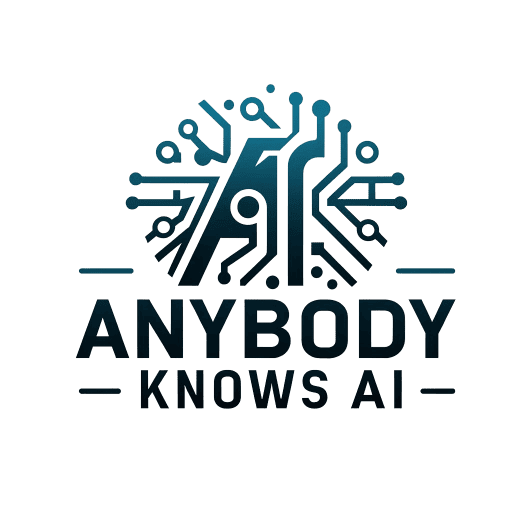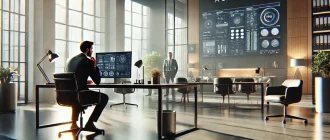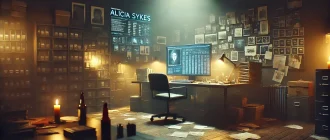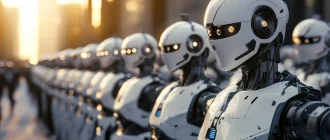Silvio Giancola is a pioneering computer vision and AI researcher currently making waves at KAUST. Known for his innovative image and video processing work, he has significantly contributed to the tech community. This article explores “Who is Silvio Giancola?” diving into his education, key projects, and professional achievements.
Key Takeaways
- Silvio Giancola has a strong educational foundation with a Master’s Degree in Mechatronics Engineering from INSA and a PhD in Computer Vision from Politecnico di Milano.
- As a research scientist at KAUST, Giancola focuses on computer vision and AI, contributing significantly through various projects and collaborations within academia and industry.
- Giancola’s extensive work in computer vision includes noteworthy projects like NetVLAD and roles in organizing prominent workshops, earning him numerous awards and recognitions for his contributions to the field.
Early Life and Education
Silvio Giancola began his academic journey in 2012 with a Master’s Degree in Mechatronics Engineering from the Institut National des Sciences Appliquées (INSA) in Strasbourg, France. This course of study laid the groundwork for his future contributions to science and technology. His MSc in Mechatronics from the Department of Mechanical Engineering at INSA equipped him with a robust understanding of mechanical engineering, systems, and automation.
2017 Giancola furthered his education by obtaining a PhD in Computer Vision from the Department of Mechanical Engineering at Politecnico di Milano, Italy. This marked the onset of his exploration into computer vision computing and artificial intelligence, shaping his professional trajectory and research areas.
PhD Thesis and Research Focus
Silvio Giancola’s PhD research at Politecnico di Milano was groundbreaking. Conducted in the Department of Mechanical Engineering, his thesis focused on computer vision, a field that involves enabling machines to interpret and make decisions based on visual data. Completed in February 2017, his research delved into:
- artificial intelligence
- deep learning
- robotics
- metrology
This showcases his diverse interests and expertise.
His work during this period laid the groundwork for his future endeavors as a research scientist, postdoctoral research scientist, and postdoctoral fellow. Giancola’s interests in computer vision and AI drove him to explore innovative solutions and applications, pushing the boundaries of what technology could achieve in interpreting visual information.
MSc Thesis and Key Projects
During his MSc at the Institut National des Sciences Appliquées, Silvio Giancola specialized in Mechatronics, a multidisciplinary field that combines:
- mechanical engineering
- electronics
- computer science
- control engineering
His thesis and projects during this period contributed significantly to his foundation in mechatronics, preparing him for future research endeavors.
Giancola engaged in several key projects in Mechatronics Engineering, sharpening his technical skills while gaining practical insights from applying mechatronics in real-world contexts. These projects shaped his approach to problem-solving and innovation, skills that he would later use in his professional career and research.
Professional Career
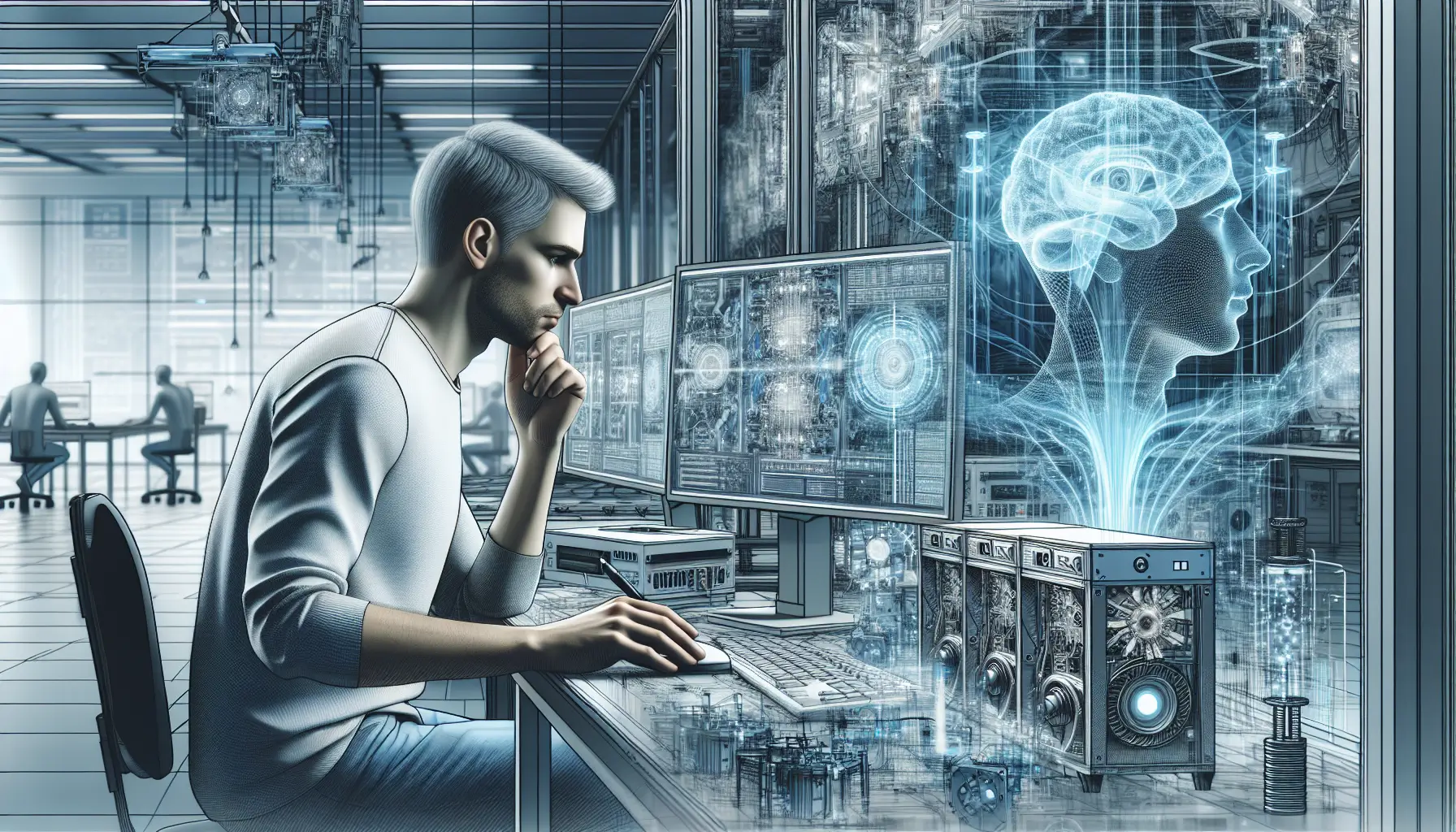
His significant contributions mark Silvio Giancola’s professional career as a research scientist at KAUST. Giancola has been at the forefront of computer vision computing and AI research at the Image and Video Understanding Laboratory (IVUL), part of the Visual Computing Center and the Artificial Intelligence Initiative at KAUST. His work has been showcased at numerous prestigious conferences, such as CVPR, ICCV, and IEEE STAR, where he has presented papers and organized sessions.
At KAUST, Giancola collaborates with leading experts and researchers, aiding in the progression of image and video understanding technologies and artificial intelligence. His professional journey reflects his commitment to pushing the boundaries of what is possible in visual computing centers in computer vision and artificial intelligence.
Research Scientist at KAUST
At the King Abdullah University of Science and Technology (KAUST), Silvio Giancola works as a postdoctoral research fellow and scientist in the Image and Video Understanding Laboratory (IVUL) under the supervision of Professor Bernard Ghanem. His work primarily focuses on computer vision and artificial intelligence, with a particular interest in 3D Sensors and Metrological Characterization. His affiliation with the Visual Computing Center (VCC) and the KAUST Artificial Intelligence Initiative underscores his significant role in advancing AI research.
Giancola’s involvement in various research projects funded by the Office of the President, Office of the Provost, and IVUL at KAUST highlights his contributions to the field. His work at KAUST exemplifies his dedication to leveraging cutting-edge technology to solve complex problems in image processing and image and video understanding.
Postdoctoral Fellowships
Before his role at KAUST, Silvio Giancola enriched his experience as a former postdoctoral fellow and research fellow at the Visual Computing Center (VCC). He also held a postdoctoral research fellow and fellowship at Politecnico di Milano, where he furthered his computer vision and AI research. These postdoctoral fellowships allowed him to collaborate with top researchers and contribute to significant projects in his field.
In April 2017, Giancola began his journey as a postdoctoral fellow at KAUST, marking the start of his time with the prestigious institution. His postdoctoral experiences have shaped his research career, allowing him to explore new computer vision and artificial intelligence frontiers.
Industry Collaborations
Silvio Giancola’s professional career extends beyond academia, involving collaborations with various industry partners. His work uses applied computing and engineering applications to develop innovative solutions, drawing on his computer vision and AI expertise. These collaborations have allowed him to bridge the gap between theoretical research and practical engineering applications, making significant contributions to the field.
In June 2023, Giancola attended VivaTech in Paris with Thya Technology, showcasing his commitment to fostering collaboration between academia and industry. His industry collaborations highlight his ability to apply his research to real-world challenges, advancing the field of computer vision and AI.
Major Contributions and Projects
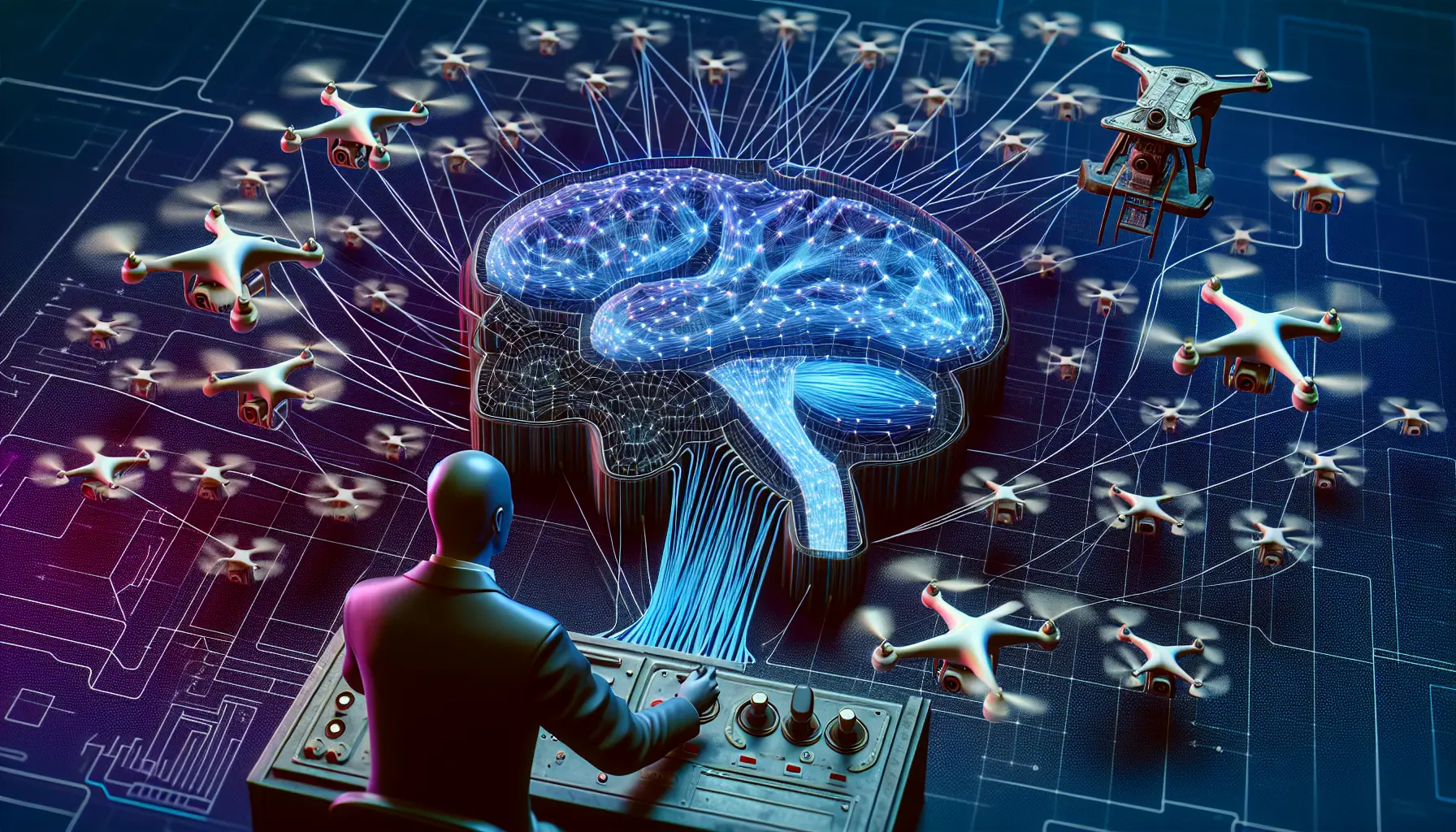
Silvio Giancola’s research centers on computer vision, machine learning, robotics, and metrology. He is interested in these areas and is dedicated to advancing knowledge and technology in these fields. His contributions to the field are numerous and varied, with significant work on projects such as NetVLAD, the UAVision Workshop, and the CVsports Workshop. These projects demonstrate his expertise and ability to drive innovation in key science and technology areas.
Particularly, Giancola’s contributions to NetVLAD have significantly advanced the comprehension and application of computer vision technologies. His involvement in organizing and reviewing workshops such as UAVision and CVsports further highlights his commitment to advancing the field.
NetVLAD: Theory and Applications
NetVLAD, which stands for Net Vector of Locally Aggregated Descriptors, is a neural network layer used for place recognition, particularly in self-driving cars, to help visual localization. Silvio Giancola’s work on NetVLAD covers its theoretical foundations and applications in video and 3D understanding. His insights into this technology have been pivotal in advancing its use in large-scale visual recognition tasks in autonomous systems.
During his talks on NetVLAD, Giancola highlighted its applications in understanding image processing video and 3D data, showcasing its versatility and importance in computer vision. His contributions to NetVLAD underscore his deep understanding of pattern analysis and applied computing.
UAVision Workshop and CVsports Workshop
Silvio Giancola has played a significant role in organizing and reviewing the UAVision and CVsports workshops. The UAVision workshop focuses on the applications of UAVs (Unmanned Aerial Vehicles) in computer vision research, exploring innovative uses of drone technology in various fields. Giancola’s involvement in this workshop underscores his commitment to advancing computer vision applications in emerging technologies.
The CVsports workshop is an international conference dedicated to using computer vision in sports analytics and performance evaluation. Giancola’s contributions to this workshop highlight his interest in the intersection of technology and sports, providing valuable insights into how computer vision can enhance sports performance and analysis.
Forensic Science International Projects
Silvio Giancola’s forensic science projects involve computer vision techniques to assist in criminal investigations and evidence analysis. These projects aim to improve the accuracy and efficiency of forensic analysis through advanced imaging pattern analysis and recognition technologies. Giancola’s work in this area showcases the practical applications of computer vision in critical fields such as:
- Crime scene analysis
- Facial recognition
- Object recognition
- Document analysis
By leveraging machine intelligence and his expertise in image processing and pattern recognition, Giancola has contributed to developing tools and methods that enhance the capabilities of forensic investigators. His projects in forensic science highlight the versatility and impact of machine intelligence and computer vision technologies in solving real-world problems.
Awards, Honors, and Recognitions
Throughout his career, Silvio Giancola has been the recipient of numerous awards, honors, and recognitions. He has received the Best Paper Award twice at the CVPR Workshop on Computer Vision in Sports in 2021 and 2022, a noteworthy achievement for his research in the field. This recognition highlights the impact of his work in computer vision and sports technology. These accolades reflect the high quality and impact of his research in computer vision.
In addition to these awards, Giancola won the Thakaa Sports+AI Competition 2nd place for his AinSports (Soccer Highlight Creation) project in 2022. His achievements highlight his ability to innovate and excel in competitive environments, further establishing his reputation as a leading researcher.
Academic Awards and Fellowships
During his academic career, Silvio Giancola has accumulated a range of fellowships and grants. He received a PhD Research Fellowship from 2014 to 2016, recognizing his outstanding research potential. In 2020, he received the Impact Acceleration Fund for the project ‘Computer Vision as a Service’ with a grant of $99.5k.
In 2022, Giancola was awarded the Impact Acceleration Fund for the Platform for Automated Analysis of Satellite Imagery with a grant of $99.5k. His most significant grant came in 2023 when he secured a Research Translation Grant for ‘EarthLabeling: Computer Vision for Aerial Images’ amounting to $742k. These awards and fellowships underscore his contributions to advancing science and technology through innovative research.
Conference and Journal Reviewing
Silvio Giancola has acted as a reviewer for several prestigious conferences and journals, including a European conference. He has reviewed papers for the following:
- IEEE/CVF Computer Vision and Pattern Recognition (CVPR) conference
- IEEE/CVF International Conference on Computer Vision (ICCV)
- IEEE Transactions on Pattern Analysis and Machine Intelligence (TPAMI)
In these roles, Giancola ensures the quality and rigor of the research presented.
In addition to these roles, he has reviewed articles for journals such as Forensic Science International and Elsevier’s Image and Vision Computing (IVC). His involvement in reviewing for these prestigious journals and conferences reflects his commitment to advancing the academic landscape and maintaining high standards in research.
Contributions to the Scientific Community
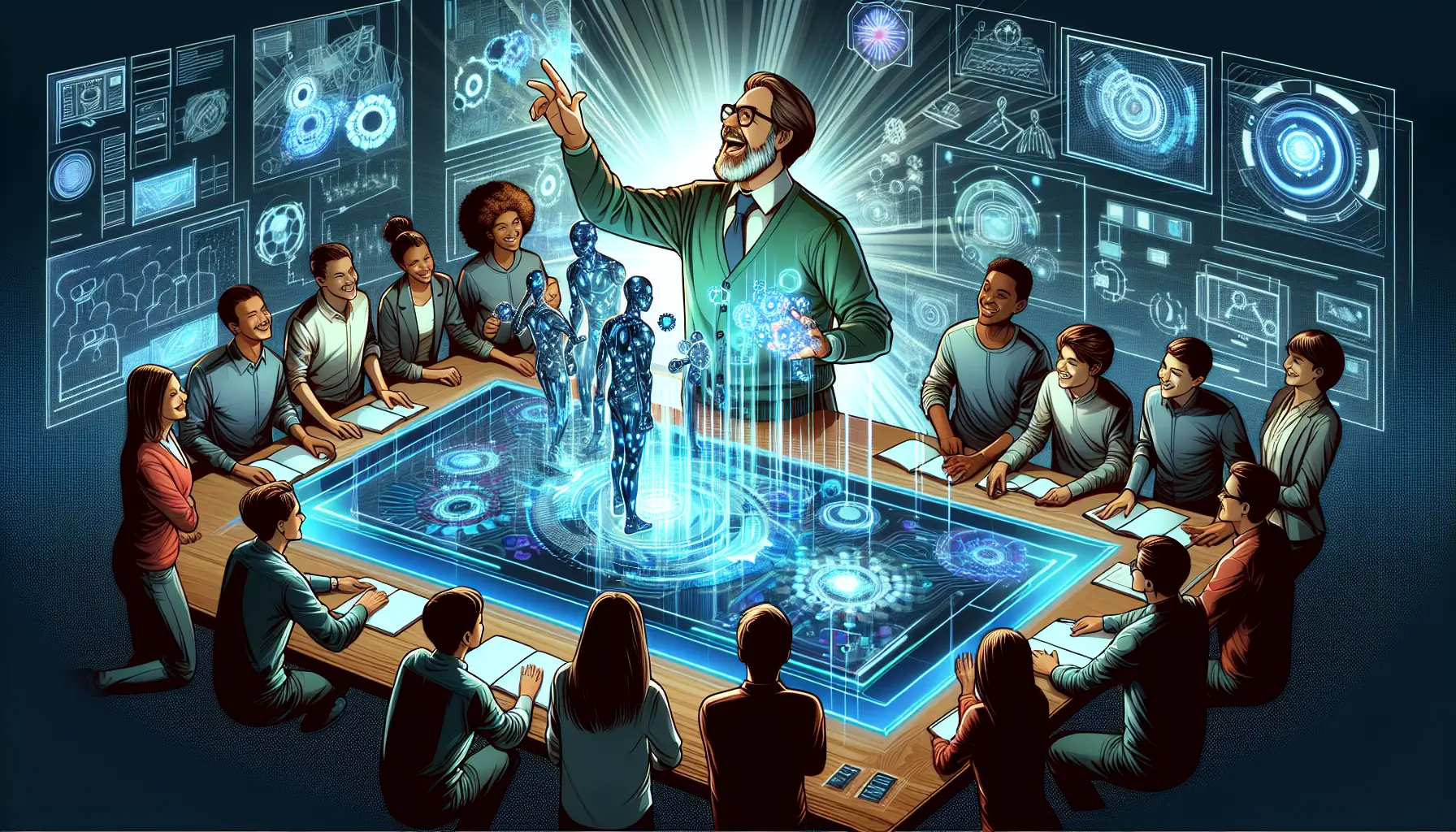
Silvio Giancola’s contributions to the scientific and technology community extend beyond his research. He has actively organized international workshops and conferences, providing platforms for researchers to share their work and collaborate. His efforts in visual computing and autonomous systems have significantly impacted academic research and practical applications.
Giancola’s dedication to the scientific community is evident in his involvement in organizing events and mentoring young researchers. His work has helped shape the future of computer vision and AI, fostering innovation and collaboration in these fields.
Program Committees and Editorial Boards
Silvio Giancola has participated in numerous program committees, most notably the ACM/SIGAPP’s Symposium on Applied Computing and the LatinX in AI (LXAI) workshop at CVPR. His role in these committees involves reviewing and selecting high-quality research for presentation, ensuring the advancement of knowledge in the field.
Giancola has also been involved in the program committees and reviewing teams for the UAVision and CVsports workshops, reflecting his active participation in the scientific community. His contributions to these committees underscore his commitment to fostering excellence in computer vision research.
Mentorship and Teaching
Silvio Giancola has guided a multitude of students and budding researchers, especially in the fields of visual computing and autonomous systems. His teaching methodology focuses on hands-on learning and real-world engineering applications, helping students develop practical skills and expertise.
Through his courses and workshops, Giancola has provided valuable learning experiences for his students, preparing them for successful careers in science and technology. His dedication to mentorship and teaching highlights his commitment to nurturing the next generation of researchers and innovators.
Summary
Silvio Giancola’s journey from a student of Mechatronics to a leading research scientist at KAUST is a testament to his dedication and passion for advancing science and technology. His contributions to computer vision, AI, and robotics have profoundly impacted the field, driving innovation and inspiring future research. Giancola’s work on projects such as NetVLAD, his role in organizing key workshops, and his numerous awards and recognitions highlight his influence and achievements.
As we reflect on Giancola’s career, it is clear that his commitment to research, mentorship, and collaboration has left a lasting legacy. His contributions continue to shape the future of computer vision and AI, inspiring new generations of researchers to push the boundaries of what is possible.
Frequently Asked Questions
What is Silvio Giancola’s educational background?
Silvio Giancola holds an MSc in Mechatronics from INSA in Strasbourg, France, and a PhD in Computer Vision from Politecnico di Milano, Italy.
Where does Silvio Giancola currently work?
Silvio Giancola is a research scientist at the Image and Video Understanding Laboratory at KAUST.
What are some of Silvio Giancola’s major contributions to computer vision?
Silvio Giancola’s major contributions to computer vision include the development of NetVLAD for place recognition in self-driving cars, organizing workshops such as UAVision and CVsports, and applying computer vision techniques to forensic science projects for forensic science international criminal investigations. These have significantly impacted the field of computer vision.
What awards has Silvio Giancola received?
Silvio Giancola has received several awards, such as the Best Paper Award at the CVPR Workshop on Computer Vision in Sports in 2021 and 2022 and 2nd place in the Thakaa Sports+AI Competition for his project AinSports (Soccer Highlight Creation) in 2022.
How has Silvio Giancola contributed to the scientific community?
Silvio Giancola has made significant contributions to the scientific community by organizing several international conferences and workshops, mentoring students, and serving on program committees and editorial boards, including those at ACM/SIGAPP’s Symposium on Applied Computing and the LatinX in AI workshop at CVPR.
